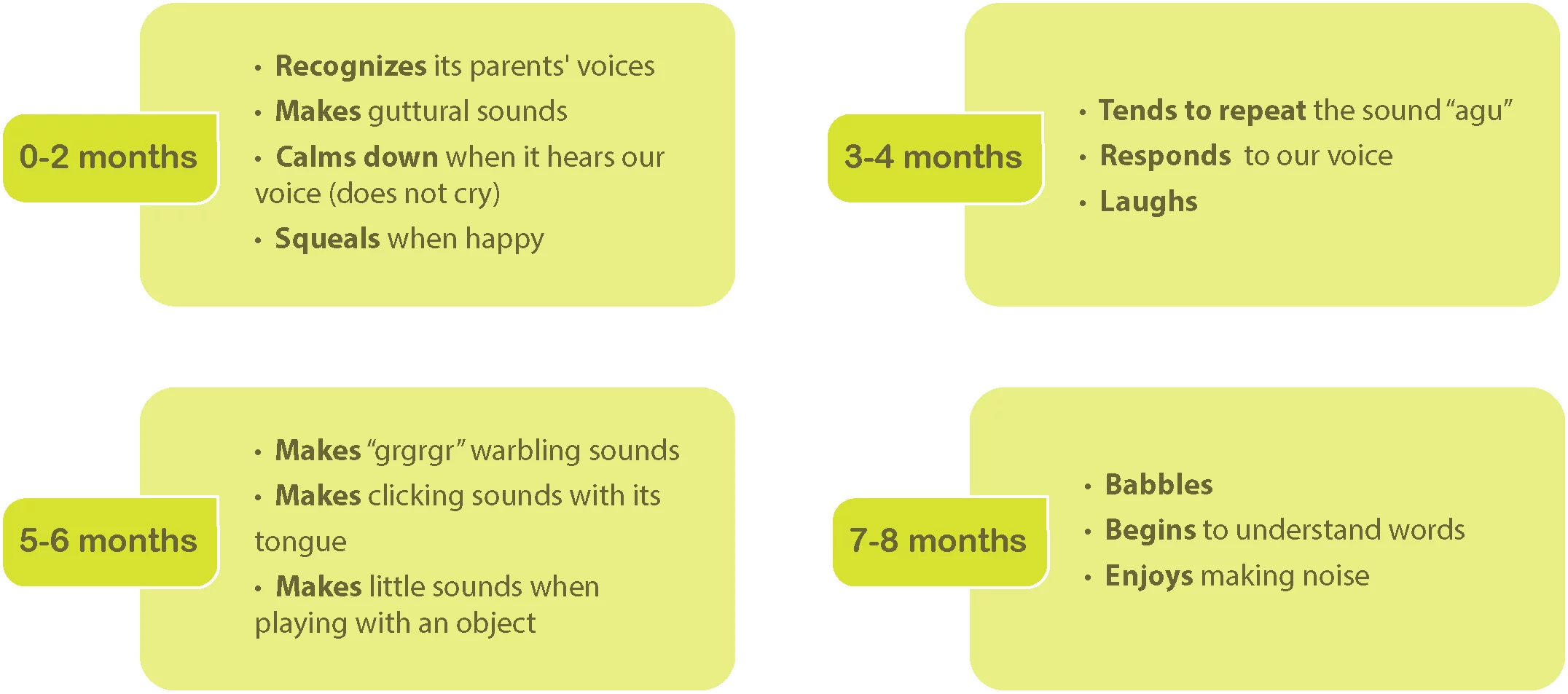Talk to your baby
You have probably already noticed that your baby understands much more than what might appear. Although your baby does not yet know how to talk, he communicates with you through his smile, expressions, sounds, cries, gazes and gestures, with an average of 200 different alternatives. But now it's time to talk to your baby!
Speak to your baby lovingly...
Babies react to sounds. They can be frightened by loud noises and relax when they hear their parents' voices, especially when spoken to lovingly and sweetly. Although your baby does not yet speak, you must motivate him, whisper to him, tell stories or sing songs in order to teach him how to communicate and learn how to convey and express emotions and feelings.
Hold him close, look at his little face, and speak to him in a pleasant tone. Pause to let him babble and make sounds. This means that he hears you and wants to reply. Although your baby is unable to understand or see you clearly, your words and smiles will make him feel comfortable, calm, and above all, happy.
Development

Stimulation

Errors
- It can be difficult to communicate with your baby, especially if you are convinced that he understands you. In many instances, the baby may receive a message that is the opposite of what was intended.
- It is a mistake to believe that the baby will understand you better by pronouncing words slowly or using incomplete sentences. Teaching a child to speak incorrectly can delay his natural development of understanding and assimilating language. He must first observe and memorize in order to then imitate what has been learned.
- Sometimes you may feel anxious because your child does not seem to follow your instructions. In most cases, he simply does not pay attention to you or he is preoccupied with something else!
- Don't worry too much if your child takes longer than other babies to begin talking. It is not a matter of intelligence but rather of a baby's development pace, which is different for each child. Oftentimes, children that take longer to begin talking turn out to be chatterboxes further on.
- It is important that you ask your baby questions, even if you know there will be no reply. This will stimulate dialog and subsequent talking at a later point.